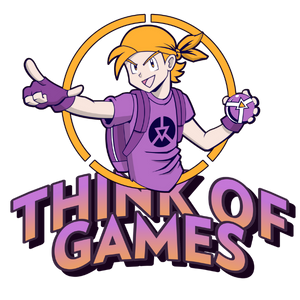There is a lot of debate on the effects that video games have on cognitive skills. Some people argue that video games improve cognitive skills, while others believe that video games have a negative impact on cognitive development. The purpose of this paper is to explore both sides of the argument and come to a conclusion about the overall effect that video games have on cognitive skills.
The first point to consider is the argument that video games improve cognitive skills. One of the ways in which video games might improve cognitive skills is by providing a stimulating and challenging environment. In a 2016-study , it was found that participants who played action video games showed improved performance on tasks that required attention and speed. The authors suggested that the stimulating and fast-paced nature of action video games may have helped to improve the participants’ attention and speed skills.

Another way in which video games might improve cognitive skills is by promoting exploration and problem-solving. In a study by Kücklich (2005), it was found that participants who played adventure video games showed improved performance on a task that required spatial ability. The author suggested that the exploration and problem-solving elements of adventure video games may have helped to improve the participants’ spatial ability.
Although the positive effects of video games on cognitive skills are still being debated, there is evidence to suggest that they might have some benefits. In particular, video games may help to improve attention and problem-solving skills. However, more research is needed to confirm these effects.
The Development of Video Games
The first video game was created in the early 1950s, and since then, they have become increasingly popular. Today, there are many different types of video games available, from simple mobile phone games to complex virtual reality experiences. Then come the Esports era. Esports is a form of sports competition using video games. The most common genres are real-time strategy, first-person shooter (FPS), and multiplayer online battle arena (MOBA).
Esports is a form of competition where players play video games against each other for spectators. The first esports tournament was held in 1972, and the industry has continued to grow in popularity ever since. In 2017, there were over 260 million viewers of esports events worldwide.
With the popularity of esports, many game developers have created games with competitive modes specifically designed for esports. Some of the most popular esports games include League of Legends, Dota 2, Counter-Strike: Global Offensive, and Overwatch.
Esporting events are held all over the world, with some of the largest tournaments having prize pools in excess of $10 million. The most popular esports tournaments are The International (Dota 2), the League of Legends World Championship, and the Overwatch World Cup.
The future of esports is looking very bright, with more and more people getting involved in both playing and watching competitive video gaming. With the rise of streaming platforms like Twitch and YouTube Gaming, anyone can become a professional esports player or streamer.

There is even a new trend that serves the development of esports in particular which is esports betting. Esports betting is a form of gambling on the outcome of an esports match. The most common types of bets are match winner, first blood, and kill/death ratio. Esports betting websites offer a variety of markets for different esports games.
The global eSports betting market is expected to grow from $12.9 billion in 2019 to $28.5 billion by 2022, with the majority of bets being placed on matches of League of Legends, Dota 2, and Counter-Strike: Global Offensive.
With the continued growth of esports, it is likely that we will see even more innovation in the industry, with new games, tournaments, and betting markets being introduced.



















